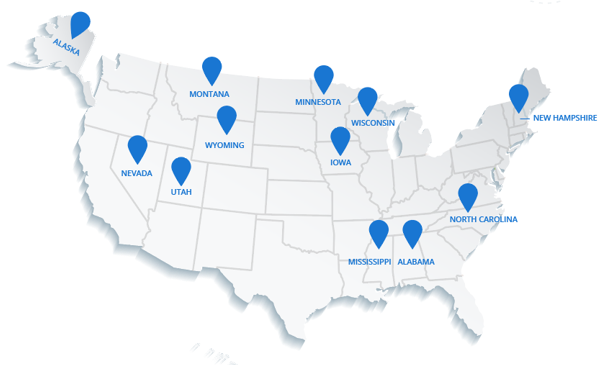If you are currently seeking APP opportunities, click on the links below to apply for openings with healthcare leaders.
- Remote Pediatric Psychiatric Nurse Practitioner job
- Telemedicine Nurse Practitioner job
- Nurse Anesthetist, CRNA job
- Telehealth Healthcare Provider (HCP) job
- Telemedicine Physician Assistant job
At DirectShifts we work with hundreds of Advanced Practice Provider (APP) leads and physicians to add Nurse Practitioners (NPs), Certified Registered Nurse Anesthetists (CRNAs) and Physician Assistants (PAs) who are collectively referred to as Advanced Practice Providers (APPs) to build their teams. Through these interactions, we have found 3 keys to success when building an APP service or practice. When hiring managers decide to start an APP service, it helps to start by writing a description of the job as part of building a business case. The next step is to search for an experienced APP to start as a formal or informal leader to help build the service or program. Then, this individual can help to recruit the next 2-3 hires, ideally experienced candidates, who are invested in building the program. Finally, most likely a year or so after the program is established, the group will also be ready to hire and train new graduates.
Write the Job Description and Business Case to Support the APP Role
To start an APP service, begin with a needs assessment regarding the necessity of adding NPs, CRNAs, or PAs to your unit or clinic. The needs assessment can be used to develop the description of the job and build the business case. It is important to include specific clinical and non-clinical responsibilities in the job description, such as research, education, and quality improvement projects. It is also important to compare your expectations on APP description with the scope of practice for NPs, CRNAs and PAs. Remove any and all activities that are not within the scope of practice and assign those responsibilities to the right care giver. Aligning APP roles with scope of practice improves hiring and retention of the APPs, as well as optimizing the APP role for revenue and access to care.
Identify a Formal or Informal APP Leader
The next step when building an APP service is to identify a formal or informal leader. An informal APP leader may have program development experience and formal leaders might have either prior leadership experience, a vision for leadership, or come from a program with a strong leadership structure that can be replicated. The APP leader must hold relevant certifications and should also have recent experience in the same specialty, population, acuity level, and patient volume. You may also want to align organizational similarities, such as prior experience in an academic or community setting.
Hire Experienced Candidates First
After a leader is established, their first goal will be to build their team. Most likely, the first hire under a lead should be a seasoned APP. Some of the characteristics, experience, and skills to look for are:
- Established and confident as an APP provider, able to focus on the art of active listening and being present for patients, families, providers, and staff.
- Proficient in the specialty area with the ability to think critically about creative solutions for care delivery.
- Experience in program development initiatives, such as policy and process development, staff and patient education, as well as creating an orientation program, professional relationship building, and quality improvement.
- An ability to understand the needs of the population, experience integrating teamwork and communication skills, and the motivation to seek out necessary resources and stakeholders to develop a program.
Hiring New Graduate APRNs or PAs
New graduate NPs, PAs, and CRNAs, although enthusiastic and eager to learn, require extra support and training. A program should be established with clear orientation and processes in order to appropriately train recent graduates. Organizations spend a lot of time and money to recruit APP and/or physicians and the leaders. Qualified APPs are hard to find. Providing new APPs with the necessary resources and support to help them succeed should be of the highest priority. In fact, turnover costs up to 2.5 times total compensation. For example, total compensation on salary of $122,000 plus benefits, which are another 20- 30%, would be a loss of approximately $300,000 to $350,000 for the institution. Once your APP service is established and growing, and you feel ready to hire new graduates, it is important to understand expectations. For example, from the time a candidate is identified to the time they are hired and credentialed can take up to 6 months. Then, if you provide the average of 4-6 month orientation for acute or primary care roles, it will take 10 months to a year from the time you identify a new graduate to them taking on a full patient load. In general, it takes approximately a year of experience before new graduates are fully productive. Essentials to success for a new graduate will require the APP program to create a full orientation and allotted time for an experienced provider to precept with the new APP graduate. To identify the right candidate, it can be helpful to align prior experience as a Registered Nurse in the specialty with the role of the new grad NP. When hiring a new graduate PA, it is important to provide an extensive orientation to the specialty. You will never regret hiring a NP, CRNA, or PA if you provide the right support and resources to help them succeed! Building a new APP service, or adding APPs to your current team, provides access to patient care, optimizes team delivery of care, increases patient, nursing, and physician satisfaction, and increases profit margins and profitability. It is important to initially invest in experienced and committed APPs to build and support the program, and then focus on training the rest of the team for success.
Resources for APP Leadership and Program Development:
- Establishment of Pediatric Cardiac Intensive Care Advanced Practice Provider Services: World Journal for Pediatric and Congenital Heart Surgery
- Article, titled Demonstrating Advanced Practice Provider Value: Implementing a new advanced practice provider billing algorithm, outlines their efforts to implement a simplified APP billing algorithm at Medical University of South Carolina (MUSC) from May 2016 to July 2017.
- April N. Kapu, Corinna Sicoutris, Britney S. Broyhill, Rhonda D'Agostino, and Ruth M. Kleinpell- Measuring Outcomes in Advanced Practice Nursing: Practice-Specific Quality Metrics
This article was originally published on Melnic. It was recently acquired by DirectShifts.
Click here to sign up on DirectShifts.
.png?width=50&height=50&name=Cube-Logo-150x150%20(1).png)
March 11, 2022




Comments